
Winkie is a 2006 allegorical novel by Clifford Chase about a sentient teddy bear who is accused of terrorism. [1]

Winkie is a 2006 allegorical novel by Clifford Chase about a sentient teddy bear who is accused of terrorism. [1]
Winkie is a teddy bear miraculously given life and freedom of movement and speech. In the novel, Winkie's gender transforms, from being a 'she' to a 'he,' as he is passed on to different children. He is first called "Marie" in the hands of Ruth, his first owner. By then Marie was just a toy, albeit already having consciousness and feelings. Marie is then passed on to Ruth's fifth children. In the ownership of Clifford Chase, the youngest of Ruth's children and named after the author, Marie is then changed into a boy. He was called "Winkie" from then on. However, when Cliff, like the previous owners, abandons and ignores Winkie upon growing up, Winkie feels betrayed, and altogether alone, for he knows that there will be no one left to 'hug' him any more. He is left sitting on the shelf above Cliff's dresser for years until given the gift of life by some mysterious and unexplainable force.
Winkie then decides to go out into the world, to get away from the humans that betrayed him. He shatters the bedroom window with a book, and climbing out onto the tree outside, is able to fulfill the first of his three wishes: freedom. He continues to fulfill the other two, with nothing else to do. Noticing some brown pods underneath a tree, Winkie eats them, fulfilling his second wish. After eating, he then proceeds to defecate, "doo-doo" as he calls it – his third wish. Winkie then goes to the other lawns of the neighborhood, making his "special mark."
On his twenty-fifth lawn, Winkie meets an old woman. Here he is torn between accepting the sweet croons of the woman and turning his back on her. Anger boiling inside him, he chooses the latter, scaring the woman away as he yelps "Heenh! Heenh! Heenh!" He then decides to go to the forest, trying to distract himself and forget the encounter with the old woman. After two days of walking and crawling, he arrives. Here he eats more berries. He falls asleep on a rock, only to be wakened by an excruciating pain in his stomach. Rolling over and over, Winkie feels as if his seams will burst open, only to find that the pain is intensifying. At its peak, however, it disappears. Thinking that the stomachache was brought by the berries he ate the night before, he turns to look at the terrible mess he made, only to find that, instead of "doo-doo," there was a baby "Winkie".
For months, father-mother and daughter live peacefully in the forest, eating berries and sometimes from garbage cans nearby. One day, Baby Winkie is kidnapped by a mad English professor living in the woods. The professor is a terrorist, making bombs and mailing them to other terrorists. He kidnapped Baby Winkie for he fell in love with her innocence and purity, only to be disappointed to find that she speaks his language of books. For months Winkie is distraught, lying down on the ground until vines began to crawl around him. One evening, he hears a hum which he is sure came from Baby Winkie. He runs after the sound, only to find her, glowing and shining brightly, in the hut where the professor lives. Baby Winkie then disappears, leaving Winkie alone and depressed. He resolves to live in the hut, acknowledging that his daughter is forever gone yet still hoping that she will return. He disposes of the professor, who died before Baby Winkie disappeared.
In the days after her disappearance, Baby Winkie appears before Winkie in a dream. "Think back," she says, and then is gone again. After three days, Winkie is arrested by the police. In the months following this apparition and his imprisonment, Winkie tries to remember everything, from his life with Ruth until his hearings in court, and is able to find meaning in his being and existence. His trial, led by the insecure and stuttering Charles Unwin against the prosecutor and most of the court audience, is not as Winkie expects. With 9,678 charges – of which he knew nothing – Winkie felt that he would lose. But when Judy, the prosecutor's assistant, sees that Winkie really is innocent and reveals that they are withholding evidence deliberately, Winkie regains hope. In the end, the jury reaches deadlock. Winkie, in the meantime, is free after the Free Winkie Committee pays for his bail. He travels to Cairo, Egypt with Françoise – a lesbian cleaning woman who mended him after he was shot during his arrest in the forest – where he begins to accept and understand why everything has happened to him.
The Cooperative de Mai in France wrote that Winkie presents a "new and critical look at our society and offers a wonderful opportunity for questioning and denunciation. Original and fanciful, this novel sends a sarcastic nod to the absurdities and excesses of the American judicial system. [2] The Dallas Morning News praised the character of Winkie, saying that he is "one [of] the most memorable stuffed animals since the Velveteen Rabbit." Time Out Chicago praised Clifford's writing, saying that "what elevates Chase's work above simple cleverness is the magic of the prose itself, which derives beauty from all things." In a starred review, Publishers Weekly said "This book is way too odd to be sentimental, and its political sensibility shuttles easily between the cartoonish and the shrewd. Chase puts himself in the same league as David Sedaris with this unclassifiable debut. [3]
The novel was named a must-read selection by Entertainment Weekly, a notable book by The New York Times , and a finalist for a Borders Original Voices Award. [4] Booklist also named the novel as one of the ten best science fiction and fantasy books of the year. [5]
However, not all reviews were positive. USA Today said Winkie's satire was only "surface-deep," adding "Chase might have a funny Saturday Night Live sketch here, but it isn't a novel." [6]
Literary agent Donald Maass has held Winkie up as a prime example of political satire for new writers, stating that "the humor isn't in the teddy bear itself. Hilarity springs from the bear's too-real situation." [7]
Since its publication, Winkie has been translated into nearly a dozen languages. [4]
In 2011, Winkie was adapted into an off Broadway play at 59E59 Theaters by the Godlight Theater Company. [1] [8] The play was adapted by Matt Pelfrey and directed by Joe Tantalo. [1]

The Hotel New Hampshire is a 1981 coming of age novel by American-Canadian writer John Irving, his fifth published novel.
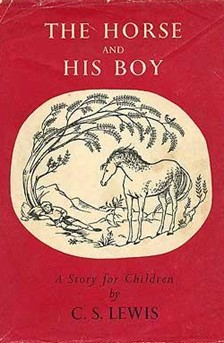
The Horse and His Boy is a fantasy novel for children by C. S. Lewis, published by Geoffrey Bles in 1954. Of the seven novels that comprise The Chronicles of Narnia (1950–1956), The Horse and His Boy was the fifth to be published. The novel is set in the period covered by the last chapter of The Lion, the Witch, and the Wardrobe during the reign of the four Pevensie children as Kings and Queens of Narnia. Though three of the Pevensies appear as minor characters in The Horse and His Boy, the main characters are two children and two talking horses who escape from Calormen and travel north into Narnia. On their journey, they learn of the Prince of Calormen's plan to attack Archenland, and warn the King of Archenland of the impending strike.

Zathura is a 2002 science fiction children's picture book written and illustrated by American author Chris Van Allsburg. In the story, implied to be set in the 1950s, two brothers; Danny and Walter Budwing are drawn into an intergalactic space adventure when their house is magically hurled through space. The book is a sequel to the 1981 children's book Jumanji, also by Van Allsburg, and visual and textual references are made to "Jumanji" in the story. The book was adapted into a film, titled Zathura: A Space Adventure, in 2005.

Never Let Me Go is a 2005 science fiction novel by the British author Kazuo Ishiguro. It was shortlisted for the 2005 Man Booker Prize, for the 2006 Arthur C. Clarke Award and for the 2005 National Book Critics Circle Award. Time magazine named it the best novel of 2005 and included the novel in its "100 Best English-language novels published since 1923—the beginning of TIME". It also received an ALA Alex Award in 2006, and the Nobel Prize in Literature in 2017. A film adaptation directed by Mark Romanek was released in 2010; a Japanese television drama aired in 2016.

The Homecoming is a two-act play written in 1964 and published in 1965 by Harold Pinter. Its premières in London (1965) and New York (1967) were both directed by Sir Peter Hall. The original Broadway production won the 1967 Tony Award for Best Play. Its 40th-anniversary Broadway production at the Cort Theatre was nominated for a 2008 Tony Award for "Best Revival of a Play".

Clifford Chase is an American author who has written the memoir The Tooth Fairy and Winkie, a novel about a sentient teddy bear accused of terrorism. He has also written additional memoirs and edited Queer 13: Lesbian and Gay Writers Recall Seventh Grade, a shortlisted nominee in the Children's/Young Adult and Nonfiction Anthologies categories at the 1999 Lambda Literary Awards.

A Long Fatal Love Chase is a 1866 novel by Louisa May Alcott published posthumously in 1995. Two years before the publication of Little Women, Alcott uncharacteristically experimented with the style of the thriller and submitted the result, A Long Fatal Love Chase, to her publisher. The manuscript was rejected, and it remained unpublished before being bought, restored and published to acclaim in 1995.
Undead is a paranormal romance book series that is written by MaryJanice Davidson and published through Berkley Books. The series was first launched in 2004 with the publication of Undead and Unwed, and as of 2016 there are fifteen books in the series, and several accompanying short stories. Davidson attributes the popularity of the series to the absurdism, tone, and believability of the characters. The series was a reaction to what Davidson saw as cliches and unrealistic characters in paranormal romance novels.
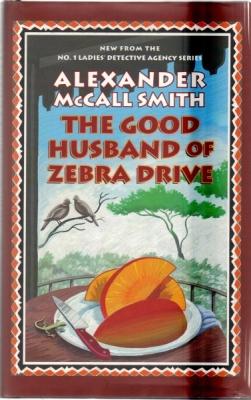
The Good Husband of Zebra Drive is the eighth in The No. 1 Ladies' Detective Agency series of novels by Alexander McCall Smith, set in Gaborone, Botswana, and featuring the Motswana protagonist Precious Ramotswe.

The Frog Princess is a novel by E. D. Baker. First published in 2002, the story is a spoof on the German fairy tale "The Frog Prince." The 2009 Disney film The Princess and the Frog is loosely based on this novel.

The Business of Dying is the first novel written by Simon Kernick. In it, Kernick introduces the character Dennis Milne, who becomes the lead character in several subsequent novels. The story is a crime thriller that follows Milne, a full-time police officer and part-time hitman whose targets turn out to be customs officers and an accountant. The novel was published in the United Kingdom in 2002 by Bantam and in the United States in 2003 by St. Martin's Minotaur.
Morpheus Road is a horror fantasy novel trilogy written by D. J. MacHale. The first book in the series, The Light, was released on April 20, 2010. The second, The Black, was released on April 19, 2011. The third and last book of the series, The Blood, was released on March 27, 2012.

Middle C is a 2013 novel by William H. Gass. Gass started writing it sometime after 1998, with a first excerpt appearing in 2001.

Scooby-Doo! Ghastly Goals is the fifth direct-to-DVD special produced by Warner Bros. Animation, based upon the Scooby-Doo Saturday morning cartoons. It was available May 13, 2014, only through Scooby-Doo! 13 Spooky Tales: Field of Screams DVD.
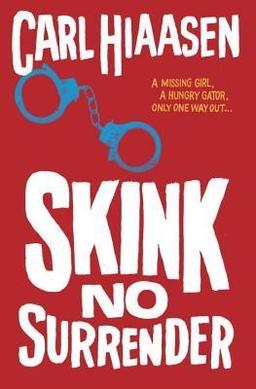
Skink - No Surrender is a young adult novel by Carl Hiaasen, published on September 23, 2014. It is described as Hiaasen's first young adult novel. He has authored four previous novels for "young" readers. Like all of his novels, it is set in Hiaasen's native Florida.

Chains, written by Laurie Halse Anderson, is the first in the Seeds of America trilogy of young-adult historical novels, published in the United States on October 21, 2008. The story follows Isabel, a teenaged African-American slave striving for and her younger sister's freedom during the American Revolutionary War. Chains takes place mainly in New York City in 1776 into 1777, at a time when slavery was legal and common in the Thirteen Colonies. The book is followed by sequels Forge (2010) and Ashes (2016).

Not Wanted is a 1949 American drama film directed by Elmer Clifton and an un-credited Ida Lupino and starring Sally Forrest, Keefe Brasselle and Leo Penn.
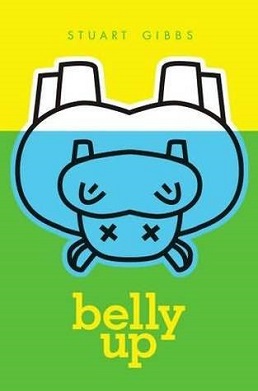
Belly Up is a 2010 children's mystery novel by author Stuart Gibbs. The story is set in FunJungle, the largest zoo in America and the only zoo/theme park, which is built in the middle of the Texas Hill Country and owned by billionaire J.J. McCracken. The story is set from the view of Teddy FitzRoy, a 12-year-old boy who is the son of a photographer and a gorilla researcher, and his friend Summer, J.J.'s daughter, investigate the suspicious death of Henry Hippo, FunJungle's mascot.
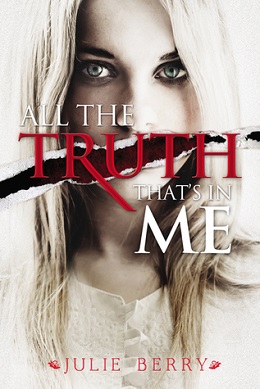
All the Truth That's in Me is a 2013 young adult novel by Julie Berry. The novel tells the story of Judith, a young woman from a deeply religious community who is kidnapped for two years and brought back with her tongue partially removed. The story deals with her life after returning and how she is treated by the village.

Ophelia and the Marvelous Boy is a 2014 middle-grade fantasy novel by Australian author Karen Foxlee. The novel is a loose retelling of the 1844 Hans Christian Andersen story "The Snow Queen".